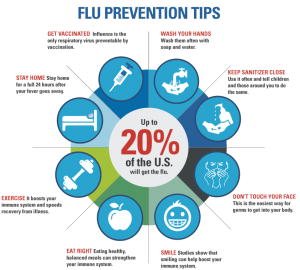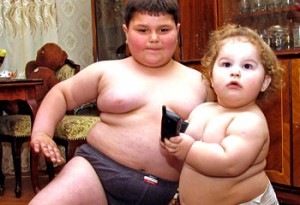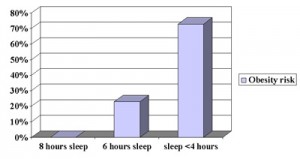Forbes invited me to publish a blog I wrote for Quora, “Seven steps to live over 100 years”.
The topic of habits by people who live more than a hundred years has been reviewed many times in the media. It continues to be popular. Here are seven things you can do to stay healthy followed by an explanation why.
Seven steps to live over 100 years – step1: Stay active
You want to stay active every day, even if you retire. You want to move and keep your mind busy. Part of that is to do a daily formal exercise routine to keep those muscles toned, which will prevent falls in the future.
Explanation: when you keep your muscles toned and you move about, your balance organ and coordination remains sharp, you are less likely to fall and break a hip. 50% of those who sustain a hip fracture die.
Seven steps to live over 100 years – step 2: Eat a healthy diet
Eat a Mediterranean type diet or follow the Okinawan diet. These diets contain less meat (or no meat as in the Seventh Day Adventist diet), but lots of vegetables and fiber. This keeps your cholesterol down, your arteries open and your metabolism controlled, preventing diabetes. If you are not obese and you have no diabetes, you are going to be OK with your cardiovascular system for decades to come.
Explanation: Heart attacks are still on top of the mortality list. Avoid them and you got it made, if you want to make it to 100 and beyond. But we need to stay away from the poor fats and the obsession about eating beef. Red meat, if eaten too often gives you a higher risk of getting cancer and heart disease. So eat it only once a week at the most, the rest would be chicken, turkey meat or fish. Nothing wrong with a vegetarian meal, let’s say kidney beans or lentils on a day in between. This still gives you protein for your muscles, but spares you a heart attack.
Seven steps to live over 100 years – step 3: Take care of your teeth
Brush your teeth and floss every day. This will control the bacteria in your mouth and prevent leakage into your blood affecting your heart valves. Studies have shown that this prevents heart attacks.
Explanation: When I heard this first about 20 years ago, I found it strange. But the literature is clear: chronic gingivitis is associated with bacteria that grow on the gums and spread into your blood. They can then colonize your heart valves and even the lining of the arteries, particularly where there is already hardening of the arteries (arterial plaque). This can lead to heart valve disease like mitral valve disease or heart attacks.
Seven steps to live over 100 years – step 4: prevention of disease
See your physician right away if there is a new skin lesion or anything that is different on your body. Removal of early cancer and treatment of any early medical condition is always easier to treat than waiting until it is out of control. Particularly with cancer treatment at an early stage, which usually involves only a small surgical procedure, this will reward you with a ripe old age.
Explanation: I learnt this point in general practice. Patients who waited until small problems become big problems were always much worse off than patients who saw me for small problems that we could remedy at an early stage. As mentioned above this is particularly important in cancer cases, as usually stage 1 and 2 of a cancer is curable with surgery. Once you get lymph node metastases and distant metastases, the cancer is much more difficult to treat, if at all. This is a principle that is pretty much true for any disease. The prevention factor is huge. Make use of it!
Seven steps to live over 100 years – step 5: Lifestyle matters
Watch excesses like smoking (cut it out!), alcohol intake, and recreational drugs. Smoking causes heart attacks, strokes, and cancers, which shorten your life. Recreational drugs just interfere with your body chemistry and have side effects. Cut them out, if you cherish growing older than 100. Alcohol needs to be kept at a very low consumption, if you want to preserve your liver, which is your central metabolic organ. If you can’t handle moderation with alcohol consumption, cut it out. No one has died from not consuming alcohol.
Explanation: I have already explained why lifestyle choices matter. The alcohol question is one that will be discussed back and forth for centuries. There are cardiologists who tell you that men should drink 1 to 2 drinks per day and women 1 drink per day and we all live longer, because of prevention of heart disease. The wine industry makes sure that you will hear this cardiology rule. It is true that centenarians often drink one glass of red wine per day. But there are plenty of centenarians who never drank in their life. It is a matter of personal choice.
Seven steps to live over 100 years – step 6: Avoid obesity and diabetes
I did mention to avoid obesity under point 2 above, which is associated with metabolic syndrome and diabetes. Your ideal body mass index should be in the 21 to 22 range. You can achieve this by following the diets I mentioned above. You should cut out sugar and starchy foods.
Explanation: I have followed such a diet since 2001 and my body mass index is between 21 and 22. I grew up in Germany where an emphasis was put on sweets and starchy foods. Needless to say my modified Mediterranean diet deviates from the good old German diet significantly. I find healthy food very tasty.
Seven steps to live over 100 years – step 7: Sleep and hormones
Getting sleep regularly, having an optimistic outlook on life, and having good relationships help to keep the immune system strong and keep your hormones balanced. This in turn will keep you healthy emotionally and physically.
Explanation:
There are two comments I like to make. One is that when you have calm nerves, and your emotions are in balance, your stress hormones are under control. We know that people who are content and easy going live longer. The type A personality is the one who gets a heart attack.
The other point is that hormones have running times. When they start missing, we get menopause or andropause. When we are in our 50’s it is time to have your hormones checked by a knowledgeable health practitioner (naturopath, anti-aging physician). At this point regular physicians are mostly lack education about bioidentical hormone replacement. I mention this as in European studies it has been shown that replacement of missing hormones with bioidentical hormones resulted in more youthful lives. You can extend your life expectancy by 15 years using bioidentical hormones according to Dr. Hertoghe, an endocrinologist in Belgium.
Conclusion
People have had a long time fascination about the factors that lead to a healthy age above 100 years. I am suggesting that you concentrate on enjoying your life and keeping toxins out. Engage in some form of exercise or stay active all the time. Adopt a healthy diet. This is where perhaps most people go wrong. They think they can go on pouring junk foods and alcohol down their throats and never get heart disease or cancer. The truth is not quite like that. We do need to adopt a healthy diet like the Mediterranean diet. We also need to limit drinking to a healthy level. Replacing missing hormones with bioidentical ones will prolong your life as well. Given these recommendations, happy journey to 100 and beyond!











